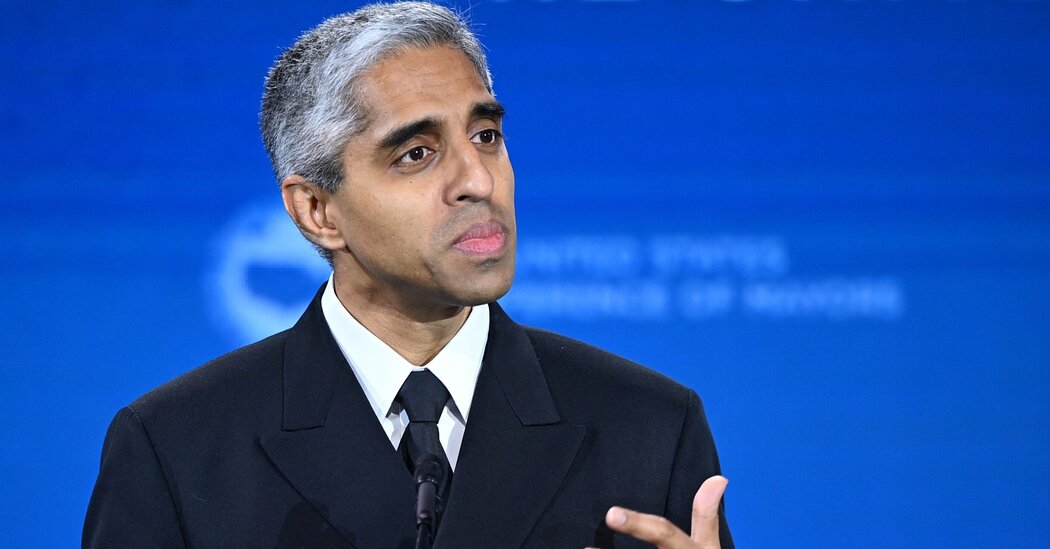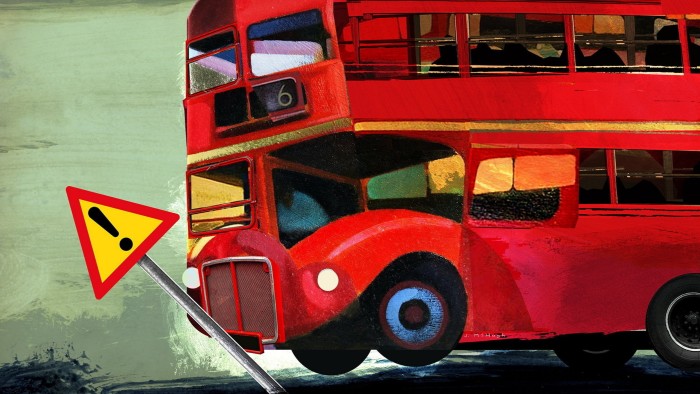
In December 2021, Surgeon General Vivek Murthy issued a rare warning: Mental health challenges were leading to “devastating effects” among young people. His statement came as the suicide rate for young Americans ages 10 to 19 jumped by 40 percent from 2001 to 2019, while emergency room visits for self-harm rose by 88 percent.
Lately, Dr. Murthy has been using his position to highlight the issue, much as Dr. C. Everett Koop, who was surgeon general in the 1980s, famously addressed the dangers associated with smoking. Dr. Murthy has been on a listening tour of sorts, speaking with students, health care workers and community groups across the country
He recently spoke with The New York Times about the growing intensity of his focus on this issue. This conversation has been edited for clarity and brevity.
You have described mental health as “the defining public health crisis of our time.” Why?
I think of mental health as the fuel that allows us to show up for our communities, our friends, our family and our lives. And when that fuel tank is low, it compromises our ability to be who we can be in our best moments and to show up at work or in school.
Other generations have faced mental health challenges. Is something different today?
There is something that’s worse. It’s not just about greater detection; yes, there is greater willingness to talk about their mental health, and that has contributed to increased reporting. But hospitalizations have gone up, and suicides have gone up. Those are real things. Something is driving the greater pain and despair.
Tips for Parents to Help Their Struggling Teens
Are you concerned for your teen? If you worry that your teen might be experiencing depression or suicidal thoughts, there are a few things you can do to help. Dr. Christine Moutier, the chief medical officer of the American Foundation for Suicide Prevention, suggests these steps:
You’ve pointed to a number of causes, including the stigma that keeps young people from seeking help and insufficient treatment resources. What other causes do you see?
There are factors driving the mental health crisis that we have to address if we really want to get at the root of the problem. Those include the growing crisis of loneliness and isolation; the fact that bullying is taking place not only offline but online; the fact that our kids are surrounded by an information environment that is coming at them 24/7 and that often stokes fear and anxiety.
It’s also being driven by the fact that young people, when they think about the future, see the profound threats that we are facing today, like violence and racism and climate change, but they don’t see effective solutions.
By the information environment, do you mean social media?
Young people, particularly in early adolescence, are at a sensitive phase of development. Their brains are developing, their relationships with others are developing, their identity and self-esteem are also developing. And right now, when I talk to young people on the road, they consistently tell me three things about social media: They say it makes them feel worse about themselves; it makes them feel worse about their friendships; and they can’t get off it.
This is not surprising, in part because these platforms have been designed to maximize the amount of time people spend on them, not necessarily to maximize how well you spend that time or how supported you are in your development of healthy relationships. Not only are adolescents spending many hours on social media each day, but that is time that they are taking away from sleep, from exercise, from in-person interaction with people, from schoolwork and from other activities that may bring them joy.
There’s also the experience that many people have on social media of being exposed to harmful content, and of being immersed in a culture where they are constantly comparing themselves to other peoples’ profiles and posts, which often leads them to feel worse about themselves. This is despite the fact that what you see on social media is not always an accurate reflection of what’s happening.
These platforms also allow young people to connect and to explore different ideas. How do you consider the tension between information overload and freedom of exploration and expression?
Life is much more complicated for people today than it was 20 years ago and certainly 100 years ago. I don’t think we should we go back 100 years. But with more choices, the anchoring values that guide you in your definition of success become all the more important. Moments like this are ones where we have to ask, What are the values that are guiding us as a society?
What’s the connection between values and mental health?
Values are the filter that we use to help us make decisions when we are faced with choices. But our values are also what inform what we drive toward in life.
Young people tell me they feel caught up in hustle culture. What they’re saying to me was that they felt that they were being asked to chase certain objectives — getting a job with a fancy title, making a lot of money, becoming famous, acquiring power. And not only did many of them say that they were exhausted, but they weren’t sure that was going to bring them happiness. This is where we have to pause and ask ourselves: Are we pushing our kids to pursue what’s really going to lead to their happiness and their fulfillment?





